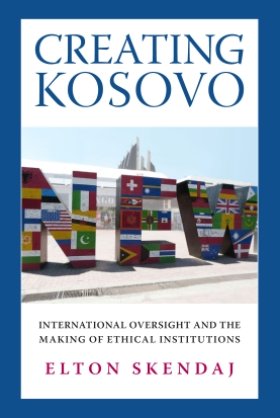Creating Kosovo: International Oversight and the Making of Ethical Institutions

-
In shaping the institutions of a new country, what interventions from international actors lead to success and failure? Elton Skendaj’s investigation into Kosovo based on national survey data, interviews, and focus groups conducted over ten months of fieldwork, leads to some surprising answers. Creating Kosovo: International Oversight and the Making of Ethical Institutions highlights efforts to build the police force, the central government, courts, and a customs service.
Skendaj finds that central administration and the courts, which had been developed under local authority, succumbed to cronyism and corruption, challenging the premise that local “ownership” leads to more effective state bureaucracies. The police force and customs service, directly managed by international actors, were held to a meritocratic standard, fulfilling their missions and winning public respect. However, local participation and contestation supported democratic institutions, and when international actors supported the demobilization of popular movements they undermined the public’s ability to hold elected officials accountable.
Elton Skendaj is visiting assistant professor in the department of political science at the University of Miami. He was a European Studies Research Scholar at the Wilson Center in 2011.
Author
 Elton SkendajFormer Title VIII Supported Research Scholar, East European Studies Program;
Elton SkendajFormer Title VIII Supported Research Scholar, East European Studies Program;
Gladdys Muir Associate Professor of Peace Studies, Manchester UniversityBrowse Insights & AnalysisExplore More
Browse Insights & Analysis
Iraq Should Consider Extending UNAMI’s Mission
Posted date/time:
Middle East Dialogue February 2025 Meeting Report
Posted date/time:

